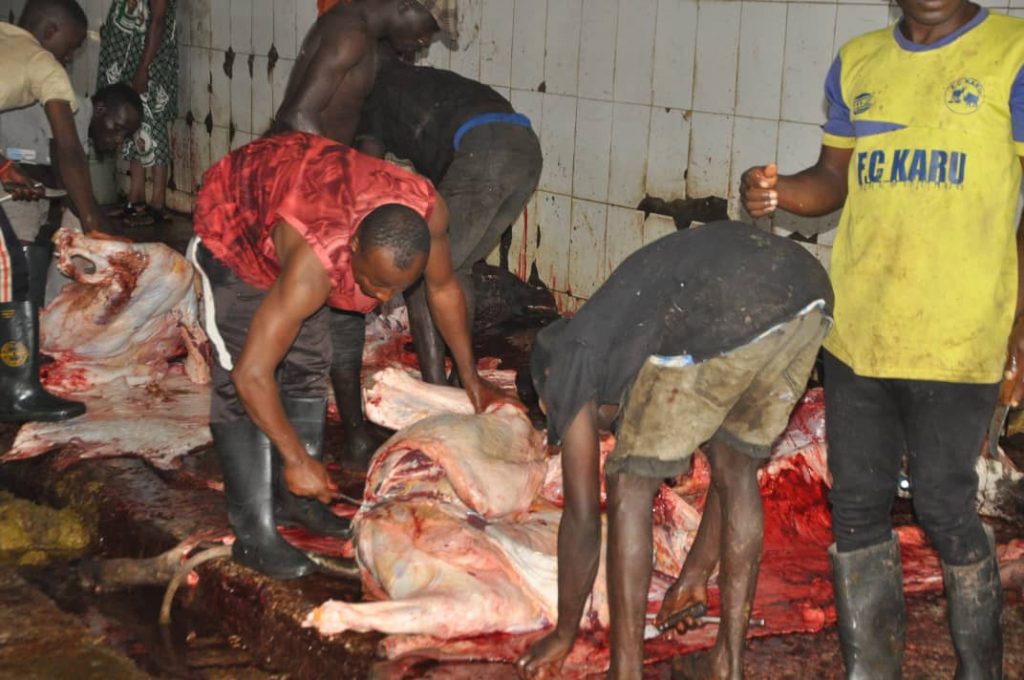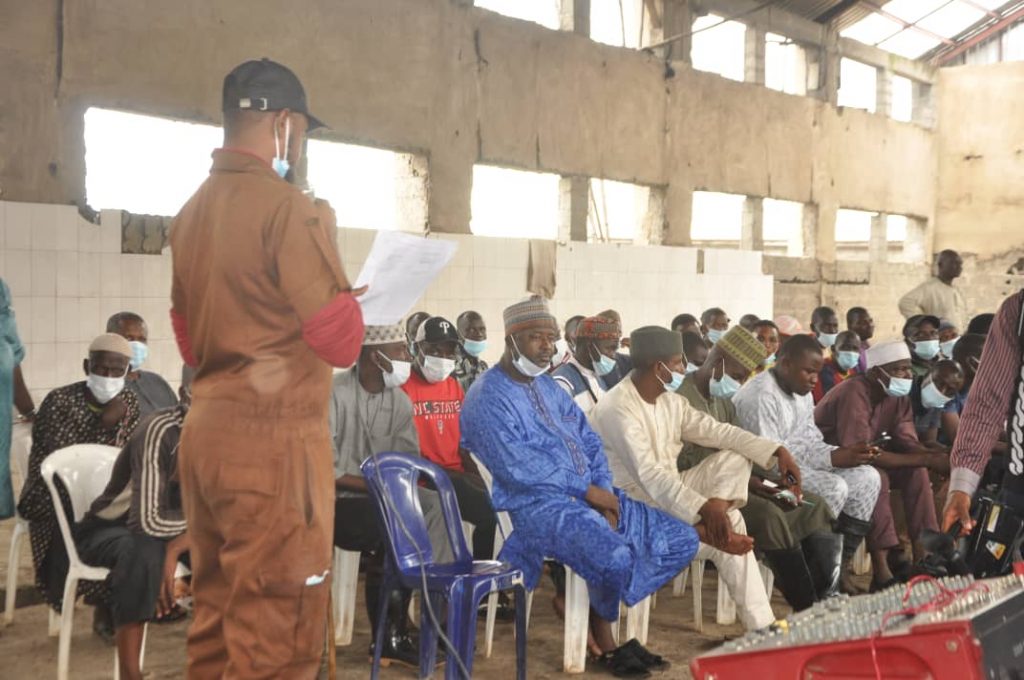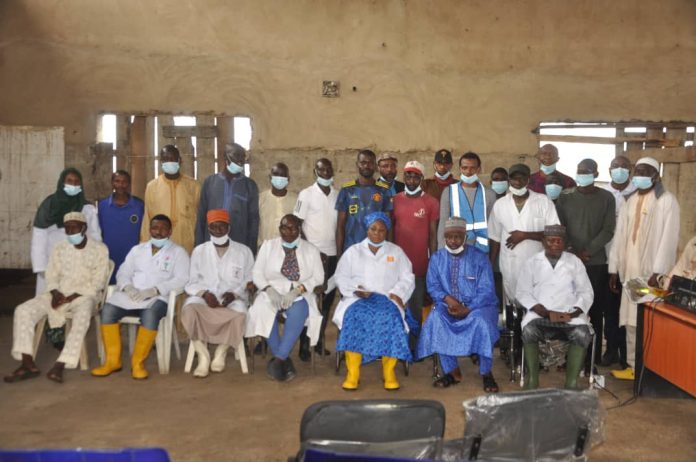The Federal Ministry of Agriculture and Rural Development, in collaboration with its development partners, on Monday, conducted a sensitization workshop to raise awareness among butchers and livestock traders about the outbreak of anthrax disease in neighboring countries within the West African sub-region.
According to a statement issued by the Chief Information Officer of the Ministry, Eremah Anthonia, The workshop was aimed at educating stakeholders about preventive measures to combat the menace of anthrax.
Dr. Columba Vakuru, the Director and Chief Veterinary Officer of Nigeria (CVO) emphasized the importance of creating awareness regarding the preventive and control measures to address the outbreak of anthrax.
While there are currently no suspected or confirmed cases of anthrax in Nigeria, Dr. Vakuru urged livestock stakeholders to remain vigilant and take necessary precautions.


Anthrax is a bacterial disease that affects both animals and humans, making it a zoonotic disease. Dr. Vakuru explained that the bacteria exist as spores, which can be found in the soil, wool, or hair of infected animals.
Animals can become infected by inhaling or ingesting spores present in contaminated soil, plants, or water. Similarly, humans can contract the disease by inhaling spores, consuming contaminated meat, or coming into contact with the skin through wounds or cuts while handling an infected animal.
The signs of anthrax in animals include sudden death within a few hours without exhibiting any symptoms, shivering in some animals due to high fever, difficulty in breathing, and convulsions, among other indicators.
In humans, symptoms include fever, painless skin sores or ulcers with black centers, respiratory problems, severe stomach pain, and overall body pain.
Dr. Vakuru emphasized several preventive measures to control the spread of anthrax. These include refraining from buying or selling sick animals to the public, avoiding the purchase of animals from areas where outbreaks have been suspected, not purchasing cheap animals, and wearing protective gear such as nose masks, work clothes, and boots when in contact with animals.
Regular handwashing with soap after contact with animals and the frequent disinfection of floors are also crucial preventative measures.
Anthrax spores are known to be highly resilient, capable of surviving in a contaminated environment for several decades, even up to a century. Control of the disease is therefore challenging, as spores can be brought to the surface by wet weather conditions and other factors.
Due to Nigeria’s close relationship with Ghana, particularly through border movements of humans and animals, and strong trade relations, there is a high risk of anthrax being imported into the country.
The Nigerian government has taken precautionary measures to address this risk. These include the establishment of a National Anthrax Technical Working Group (TWG), the dissemination of information through press releases, and the development of an Incident Action Plan.
Dr. Vakuru urged Nigerians to report any suspected cases of anthrax in animals promptly to prevent the spread of the disease to unaffected animals and humans.
Hanisu Wawu, the Livestock Manager at the Dei-Dei Market, assured attendees that all livestock brought for sale or slaughter would be closely monitored. He pledged to ensure that livestock dealers adhere to the directives of the federal government to prevent disease outbreaks in the country.
The sensitization workshop was attended by officials from the Veterinary Council of Nigeria, butchers, livestock traders, and other stakeholders concerned with the prevention and control of anthrax.






